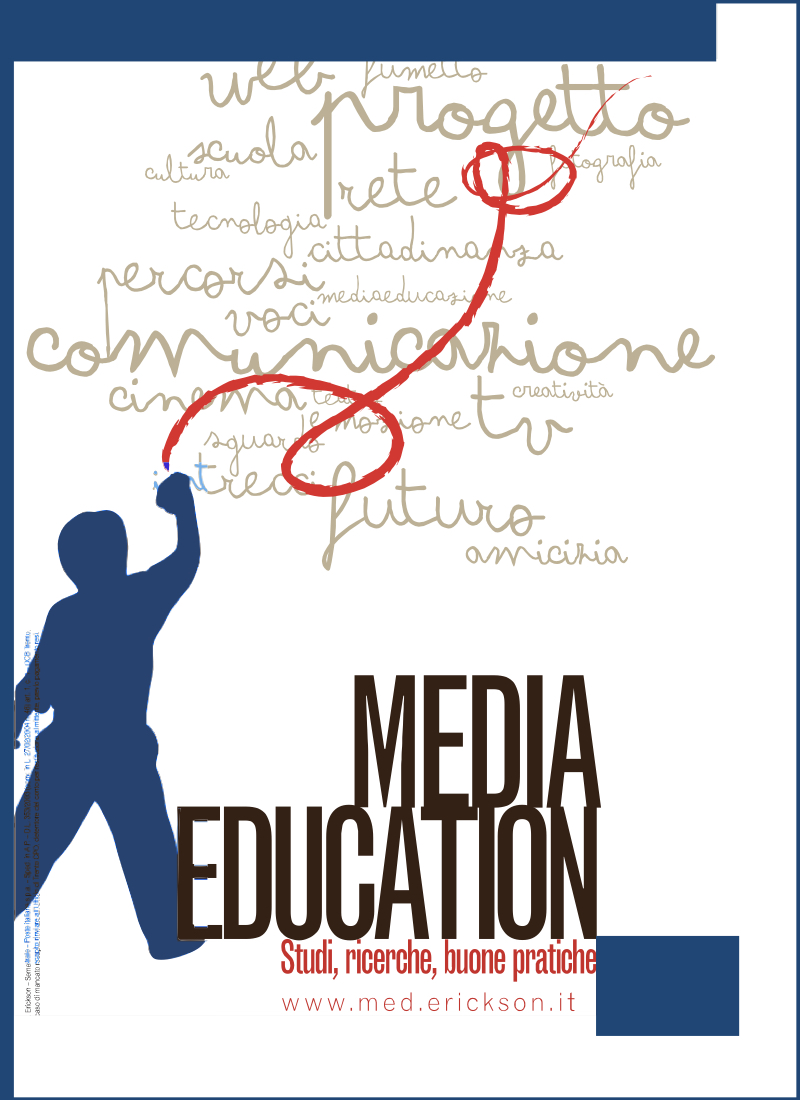Published 2020-05-04
Keywords
- Videogioco, attività ludica, Game Studies, educazione,
- Videogame, playful activity, Game Studies, education
Abstract
Il videogioco, come nuovo medium e linguaggio multimediale, si propone come una trasformazione del gioco in chiave tecnologica e digitale, e utilizza modalità d’intervento più fluide e plasmabili. Essendo un gioco a tutti gli effetti, contiene al suo interno gli elementi tipici di un’attività ludica e come trasformazione multimediale, ne ottiene tutti i vantaggi, permettendo una libertà di espressione svincolata dagli schemi della realtà. Da Caillois che descrive il gioco secondo diverse facce della stessa medaglia, a Huizinga che invece lo definisce più antico della cultura stessa, il gioco viene sicuramente a rappresentare un’esperienza unica dell’agire umano, all’interno della quale convivono diversi spazi di rappresentazione, di regole e di costruzione delle abilità, che permettono al soggetto che gioca di sentirsi parte integrante di questo processo di costruzione di significati. Lo studio del videogioco si è risvegliato però solo negli ultimi anni e per tale motivo, grazie al contributo di importanti studiosi, le riflessioni teoriche proposte dal settore multidisciplinare dei Game Studies, sono state in grado di restituire importanti momenti di approfondimento e di dialogo su questa tematica ancora tutta da sviluppare. Il videogioco non più visto come semplice mezzo d’intrattenimento, è stato rivalutato come medium in grado di produrre diversi linguaggi e stili comunicativi, attirando sempre di più l’interesse di studiosi e ricercatori. Così il dibattito si divide nuovamente in due nodi principali, tra coloro che vedono la dimensione narrativa ed espressiva dei videogiochi come fondamentale, definiti narratologi e invece coloro che danno importanza agli aspetti formali del gioco, definiti ludologi. Sino ad arrivare alla comprensione che il videogioco non è solo un gioco digitale, ma uno strumento ricco di elementi potenzialmente educativi.
The videogame, as a new medium, and media language, offers a transformation of the game in technology and digital key, and uses more fluid and malleable intervention mode. Being a game for all intents and purposes, it contains all typical elements of a playful activity and as a multimedia processing, it gets all the advantages, allowing a freedom of expression released by the schemes of reality. From Caillois describing the game according to different faces of the same medal, to Huizinga instead it calls it the oldest of the same culture, the game is definitely to represent a unique experience of human action, in which they evolve different spaces representation of rules and skills of construction, which allows the person to feel that plays an integral part of this process of building meanings. The video game study, however, is awakened only in recent years and for this reason, with contributions from leading scholars, the theoretical considerations proposed by the multidisciplinary field of Game Studies, have been able to give us important moments of study and dialogue about this issue in development. The videogame is no longer seen as just a tool of entertainment, but it has been re-evaluated as a medium capable of producing different languages and communication styles, attracting more and more the interest among scholars and researchers. Therefore, this discussion is divided into two main parts, including those who see the narrative and expressive dimension of videogames as a priority, defined narratologists and instead, those who only thinks about the importance to the formal aspects of the game, defined ludologists. Until you get to understand that the videogame is not only a digital game, but a potentially educational tool.

